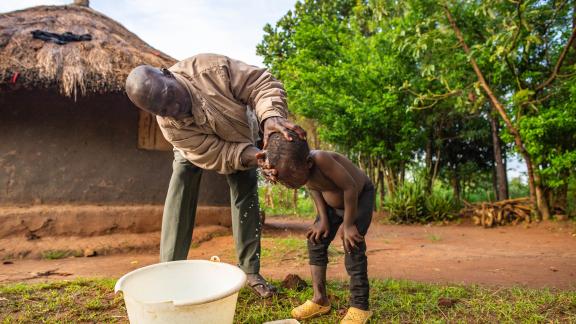Did you know that working together to do domestic tasks not only reduces the burden of care but also strengthens relationships?
Unpaid care and domestic work, though very important, impose significant financial and emotional costs that largely remain unseen in policies and budgets. These costs cross the boundaries of the paid and unpaid economies, remaining invisible because such work is excluded from traditional economic measurement, though it is fundamental to economic growth.
“Globally, women and girls perform nearly 2.5 times more unpaid care and domestic work than men. In Uganda, studies such as the 2017–18 Time Use Survey show that women perform significantly more unpaid care and domestic work than men, often sacrificing paid work, education, and leisure time”
These studies highlight a gendered division of labour, with men spending more time on employment and socialising, while women disproportionately handle household chores and caregiving, including during late-night hours.
The gendered gap in time use exists across all age groups and contexts, though the degree of inequality can vary. During the evening and night, women are much more likely to be engaged in unpaid care work, while men rest or participate in social activities.
This heavy burden limits women's opportunities for paid employment, education, rest and leisure. Unpaid care also negatively impacts school attendance as girls are seen dropping out of school to attend to ever-increasing care needs within their homes and communities.

Shifting Conversations on Care Work
Over the years, the conversation on unpaid care and domestic work has increasingly become commonplace, including in cultural and faith-based spaces that are often male-dominated and conservative. Discussions on the recognition and redistribution of care work to men, while somewhat sensitive and controversial, are now easier to initiate and conduct.
These gradual shifts, which allow both women and men to negotiate the sharing of care responsibilities, are the result of amplified and sustained conversations around care work across society.
Encouragingly, these conversations are no longer confined to the general public or advocacy circles. Care conversations have entered policy-making spaces, influencing legislative and institutional agendas.
Since 2021, the Parliament of Uganda has deliberated on care-sensitive bills such as the National Health Insurance Scheme Bill, 2021, and the Employment (Amendment) Act. These initiatives represent critical steps toward integrating care considerations into national frameworks recognizing care work as a pillar of social and economic wellbeing rather than a private household matter.

Rethinking Recognition and redistribution of care work.
Imagine if unpaid care and domestic work were recognised as actual work and included in the country’s annual Gross Domestic Product (GDP) calculations. Perhaps then we would better appreciate how important care work truly is.
What if men and women started working together to provide care? Shared care work could free up time and promote fairer access to social, political, and economic life for everyone in the household. This sounds like love and care, doesn’t it?
There is so much each one of us can do to bring about this change. Governments must ensure social services are brought closer to the people, such as nearby water sources, reducing the time taken to access these services. Organisations can support by adopting policies that recognise that care work is work and by providing flexible working arrangements to enable caregivers to balance paid and unpaid work.
“I have personally thrived as a working mother thanks to the gender-sensitive policies Oxfam in Uganda has adopted, which permit flexible working hours for mothers after maternity leave and, when needed, flexible work-from-home options. Above all, caregivers need to be appreciated!”
Time to care
On 29 October, as we mark the International Day of Care and Support, we highlight the importance of care work for economies and societies. We call upon duty bearers to ensure increased investment in public care systems, greater support for caregivers (both paid and unpaid), and recognition that care is a human right and a public good.
Let us continue to raise awareness of the crucial but often undervalued work of caregiving, which includes both paid and unpaid labour.
Above all, it’s our time to care and the time is now!
